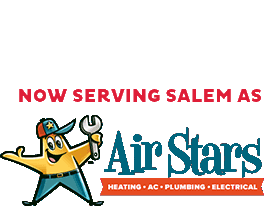Loud noises from your ductwork can propagate throughout your entire home. The loud rush of air and sudden banging, popping, and knocking sounds can be unnerving. These noises are usually caused by air moving through ducts. While noisy ducts can leave you calling a technician for ductwork repair or consider replacing them with a ductless heating and cooling system, here are four common reasons why your ducts may be noisy.
Possible Causes of Ductwork Noise
The most common reasons to hear noise in your HVAC ducts include:
- Air Pressure: A buildup of pressure can cause rumbling sounds. It can also cause the metal to expand and contract. When the system comes on, air pushes against the walls of ducts, expanding them. A popping or banging noise can often be heard upon startup. When the airflow slows down, the pressure reduces, causing the metal walls to pop back to their original shape.
- Closed Dampers: If dampers in your HVAC system are closed, pressure can increase, leading to various noises. This usually doesn’t happen by closing one damper. However, if you close multiple dampers, the system may become noisy, and closing too many supply vents can strain your HVAC equipment.
- Dirty Air Filter: If your air filters become dirty and clogged, it can affect the movement of air and cause noise. HVAC filters should be cleaned or replaced on a regular basis. Routine ductwork cleaning should be scheduled, as a buildup of debris can restrict airflow within the channels.
- Bent Flex Ducts: Many times, ductwork isn’t properly installed. This can cause it to sag or bend, making it harder for air to move. Static pressure therefore increases, and this, in turn, generates noise. If you are using flexible ducts, be sure that the contractor you hire is familiar with this type of ductwork installation.
Solutions
Believe it or not, noise from your air ducts can be reduced. There are practical solutions that you can use to address the sounds you hear and make your home a much quieter place.
- Adjust Fan Speed: The amount of airflow should be configured during installation. But it’s not uncommon for an installer to set the fan speed too high. If this is the case, you may be able to lower the fan speed to reduce static pressure. However, it’s important to know what the proper airflow level is, as reducing it from a proper setting can lead to a lack of airflow to different rooms.
- Install Larger Ducts: It’s possible your ducts aren’t large enough to accommodate the intended volume of air, even if other HVAC components are sized properly. You can install larger ducts or more of them to quiet things down. Installing larger return and supply plenums can help as well. Higher velocity registers and grilles can also cut down the noise by supporting more airflow.
- Add a Bypass Duct: A bypass duct can relieve pressure in a multi-zone system. You should consult a ductwork installation professional, with experience in this type of work, to see if this is the best option. Reducing system pressure can be helpful in eliminating excess strain and lowering the risk of preventable issues.
Contact Sky Heating, Air Conditioning & Plumbing
If you have excessive noise coming from your ductwork, we can inspect your HVAC system for any issues and make possible adjustments to help. We are trusted throughout Portland and The Dalles for quality heating and plumbing services. Whether you need furnace repair or want a ductless HVAC system installed, you can count on Sky Heating, Air Conditioning & Plumbing. Schedule service online or call 541-275-2918 today!

